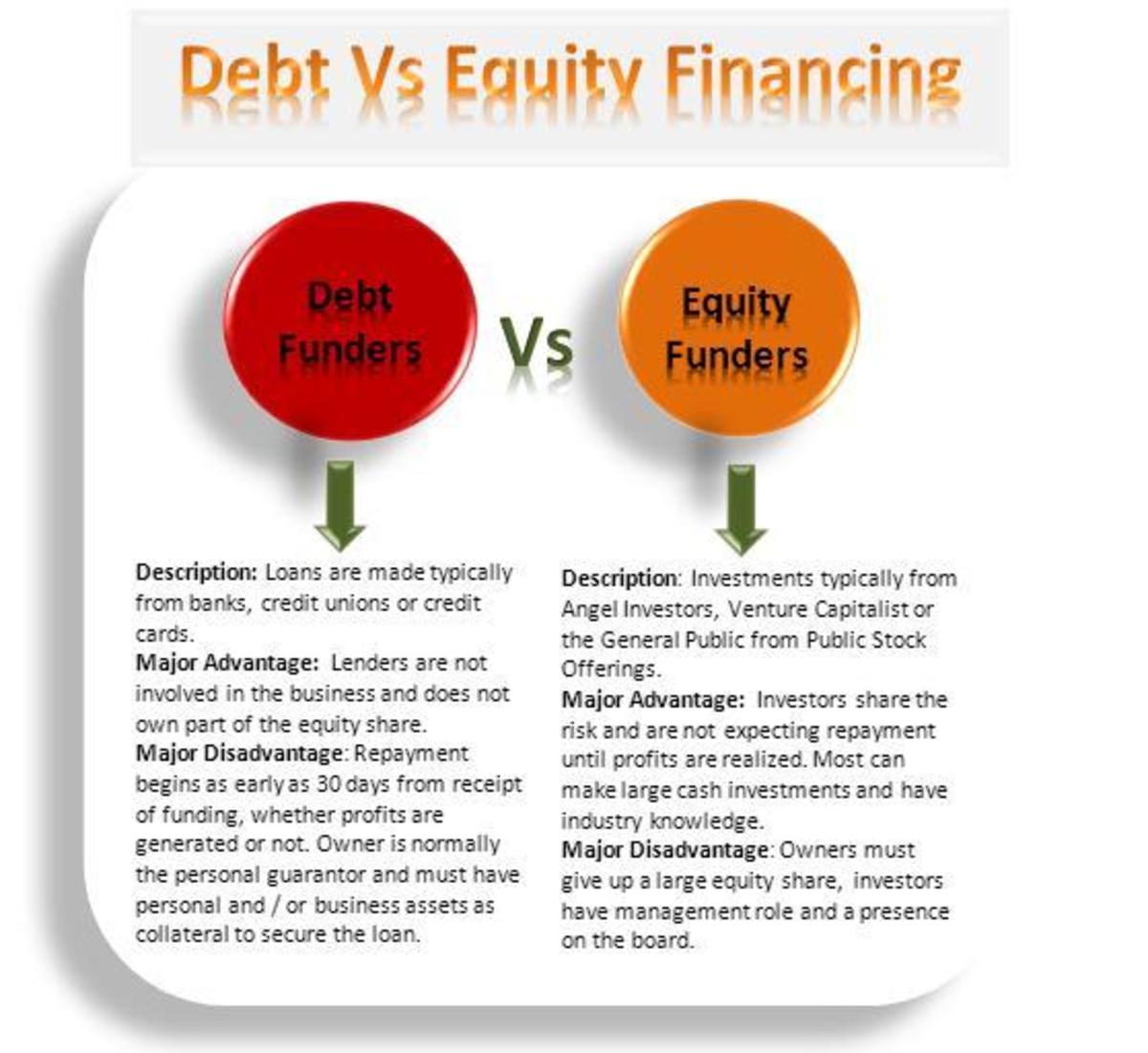What are the best small business financing options?
Starting a small business
Once you have gone through all the soul searching, the market research, weighed all the known pros and cons, you are in a position to determine if you are cut out to be a small businessman. Starting your own small business can be a very rewarding undertaking. You are finally your own boss, you do things your way, and you can make a living out of doing something that you have always wanted to do, and you enjoy it. Along the way, an integral part of your planning will rotate around financing a small business. This facet of the planning is all part of learning how to be an entrepreneur.
Small Business Financing Options

Planning to be an independent business owner starts with the development of the Business Plan, This plan will lay down the basic parameters; what is the business? How do I market it? Do I have competition? How will I operate the business? Do I need employees? Do I need insurance? And perhaps most importantly, what are my small business financing options? Before you can answer that question, you must establish your capital requirements. All the operating expenses, plus adequate working capital must be at hand to make your entry into independent entrepreneurship possible. Once you know your needs, you can then answer the question, where do I get small business financing and which of the myriad of options are best.
Small Business financing questions
Before you roar off to the bank or the credit union to apply for a loan, make very sure that you know all the options. You must be adequately prepared to defend your application, do you know your actual startup costs, do you know at what point you will break even? These are questions that will be asked, and to ensure success, you will need convincing answers.
If you feel you are ready to tackle the world of finance, and you’re ready to evaluate the available sources of funding for small business equipment financing, then let us consider the options.
Loans for financing small business

Small Business personal loans
depending on the capital needs, you may wish to consider turning to family or friends for assistance. This can oftentimes be an attractive solution, especially if the requirements fall within the ability of the people approached. The amount most often solicited from friends and families will not exceed $50,000. When you decide to approach this potential source of funding, do it in the same manner you would if it was your banker and not your Mother-in-Law sitting across from you. Be very professional in your approach, do not try to oversell but maintain a certain air of enthusiasm. As it will be a loan and not a grant, be prepared to discuss terms; the repayment schedule and the interest rate and the ramifications should the enterprise fail.
When the amount needed is in excess of what family and friends are willing to advance, financing small business through institutional loans is the next stage.
Small Business Institutional loans
Obtaining a bank loan is not the easiest thing in the world, but it can be done, it is done every day of the week. If you are going to approach the bank where you hold your personal accounts, it is oftentimes easier. You should make it your business to find out what you can about what factors the bank uses when they evaluate your application. If you have already developed a working relationship with your banker, access to this information is easy. Different lending institutions have different parameters that they set for loan approval. If you can find out in advance what is most important to the bank, you can address your replies in more depth and detail.
Financing small business is really no different than financing big business. One of the key elements that are looked at by either an institution that offers equity financing or an institution that offers debt financing is your debt-to-equity ratio. This ratio is the simple relationship between the money you have borrowed vs. the money that you have invested in the business. Funding is easier if your investment in the business is greater than the current debt. To determine if you should contemplate debt or equity financing you should look at you debt-to-equity ratio. If your ratio of equity to debt is high, seek debt financing. If you have a high proportion of debt to equity, seek equity financing to increase ownership investment. You do not want to find your company over leveraged with high debt and low capital. That is a sure recipe for disaster.
If your debt-to-equity ratio is high, and you decide to apply for a bank loan, you will maintain 100% of your ownership, but you will take on the burden of repayment. All situations are different, but many banks will demand collateral and more often than not, this will mean using your house for this purpose.
Small business funding tips
Other small business financing options
If your circumstances are such that you need equity financing, you stand to give up a percentage of ownership in your company. In return for a holding in the company, equity financing allows you to get funding with no additional debt and no need to repay at any specific time. The provider of added equity gets his rewards just as you do, profit and dividends. These financial rewards are shared between all the equity partners in accordance with the percentage of the business they own.
Although there are other ways to get financing for small business, such as government grants, for the small business or a business that is in an active stage of growth, equity financing is perhaps the best option. Venture capital abounds, but the venture capitalist is wary of parting with his money, having been burnt with the bursting of the dot-com bubble. However, they are institutional risk takers, and if approached with a viable business plan, including the sale or IPO option with a three to five year period, you will be of interest to them. You may very well find yourself sharing management control with a representative from the venture capitalist, but if you’re ready to grow and then turn your vision into cash, then in the opinion of the writer, equity financing is the best of all the options available for financing small business.
Further Reading
- The Start Up Business HubSmall business funding: Banks, investment companies,and more.
This discusses the small business funding options available to you. From Banks through to strategic investors, what's best for you? - Business finance | Smarta
Small business advice on starting up, finding finance and much more.








